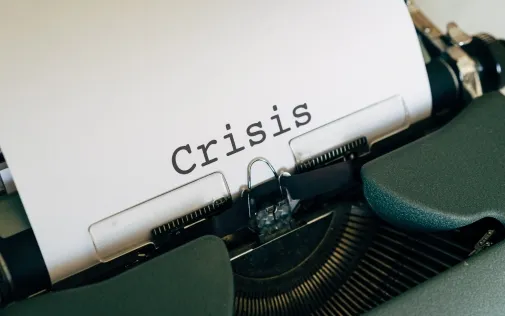
A situation of crisis makes it difficult to manage information and this may lead to the impression that the organization has not been responsible.
All organizations experience complicated times that pop up unexpectedly and are resolved in a more-or-less satisfactory manner. However, not all these critical situation need to become a communication crisis. There is one key element that determines whether this problem or conflict will become a communication crisis: when it reaches the general public, generally through large communication outlets like the media, but also social media in present times.
Examples of such cases could be an accident at the workplace, a fire, a worrying number of complaints from participants, a lack of ethics and proper behaviour from the team accompanying the people (harassment, discrimination, fraud, etc.) unsafe or unhygienic spaces, leaking personal data of people participating in our projects, and others.
When this happens, the nerves and uncertainty around managing a complicated situation comes with external pressures when this information is made public and journalists start to call asking for an explanation and the social media community starts giving opinions and criticizing our actions. It is precisely because these circumstances are unexpected and everything unfolds very rapidly that a situation of crisis makes it difficult to manage information and this may lead to the impression that the organization has not been responsible or has lacked in planning or failed to intervene.
Obviously, if we are talking of an unexpected event it is difficult to foresee a communication crisis, even if sometimes we may see small things that give us cues that we are heading into these situations, such as an increase in the number of complaints or when someone threatens to report a case or make it public. Despite this, what we can do is to have a procedure in place to know how to act if these situations happen. In a situation of tension and emergency such as in a communication crisis, having done the work upfront of analyzing situations, gathering documents and having protocols can help us to keep the situation under control.
In this sense, it can be very helpful to have studied possible risky situations that may appear during our activities beforehand. And together with this list of risks, we should develop a procedure to be followed if such a risk actually happens. What documentation would we need? Who would we warn? Do we have all of our contacts identified? Listing all these possible risks and having a protocol of action can give us control and peace of mind for when it is time to put these protocols into practice.
There are also steps that can be decisive when it comes to overcoming a crisis successfully. Confirming the facts, assessing the severity of the situation, establishing a crisis committee, centralizing information, drafting the arguments for the spokespersons and deciding the most suitable strategy with each actor involved (groups at stake, management team, public administrations, media) are some of the aspects to be considered. And when communicating externally, it is important to do so with respect, transparency and honesty. This means telling the truth, but only referring to confirmed facts to avoid having to rectify in the future, acknowledging any mistakes, updating information regularly and being prepared for questions and clarifications.
Not all is bad news, though: depending on how things are managed, this may also be an opportunity. Many organizations have come out of a communication crisis stronger than before, either because they were quick at reacting with honesty and society recognizes this, or because they have learnt the lesson from the crisis and this has pushed them to improve their procedures and services.



Add new comment